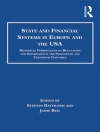Terrorism motivated by Islamist religious ideology has been on the rise for the last forty years. Why? The three prior waves of terrorism—anarchist, nationalist, and Marxist—arose generally from a combination of geopolitical events and local grievances. This “fourth wave” of terrorism, however, has risen out of a different set of conditions. Existing analyses of terrorism often consider how terrorist ideologies have evolved or how grievances have changed over time. But these approaches miss what could be called the “supply” side of ideology—how state and nonstate actors have exported an ideology of Islamism and how this ideology has taken root beyond what grievances or ideological interpretations would predict. Michael Freeman connect the dots between several key events in 1979—the hostage crisis at the Grand Mosque in Mecca, the Iranian Revolution, and the Soviet incursion into Afghanistan—and the incentives these events created for different actors to spread the supply of Islamism, the institutions they produced in various countries, and the terrorists who emerge from these institutions. In The Global Spread of Islamism and the Consequences for Terrorism Freeman examines four countries that have experienced this export of Islamism—Indonesia, Pakistan, the United Kingdom, and the United States—and briefly describes similar patterns in other countries. Understanding the importance of the supply side of Islamism helps us better understand the strength and staying power of this current wave of terrorism as well as opportunities to better counter it.
Katherine Ellena & Michael Freeman
Global Spread of Islamism and the Consequences for Terrorism [EPUB ebook]
Global Spread of Islamism and the Consequences for Terrorism [EPUB ebook]
Buy this ebook and get 1 more FREE!
Language English ● Format EPUB ● ISBN 9781640124141 ● Publisher University of Nebraska ● Published 2021 ● Downloadable 3 times ● Currency EUR ● ID 8065291 ● Copy protection Adobe DRM
Requires a DRM capable ebook reader












